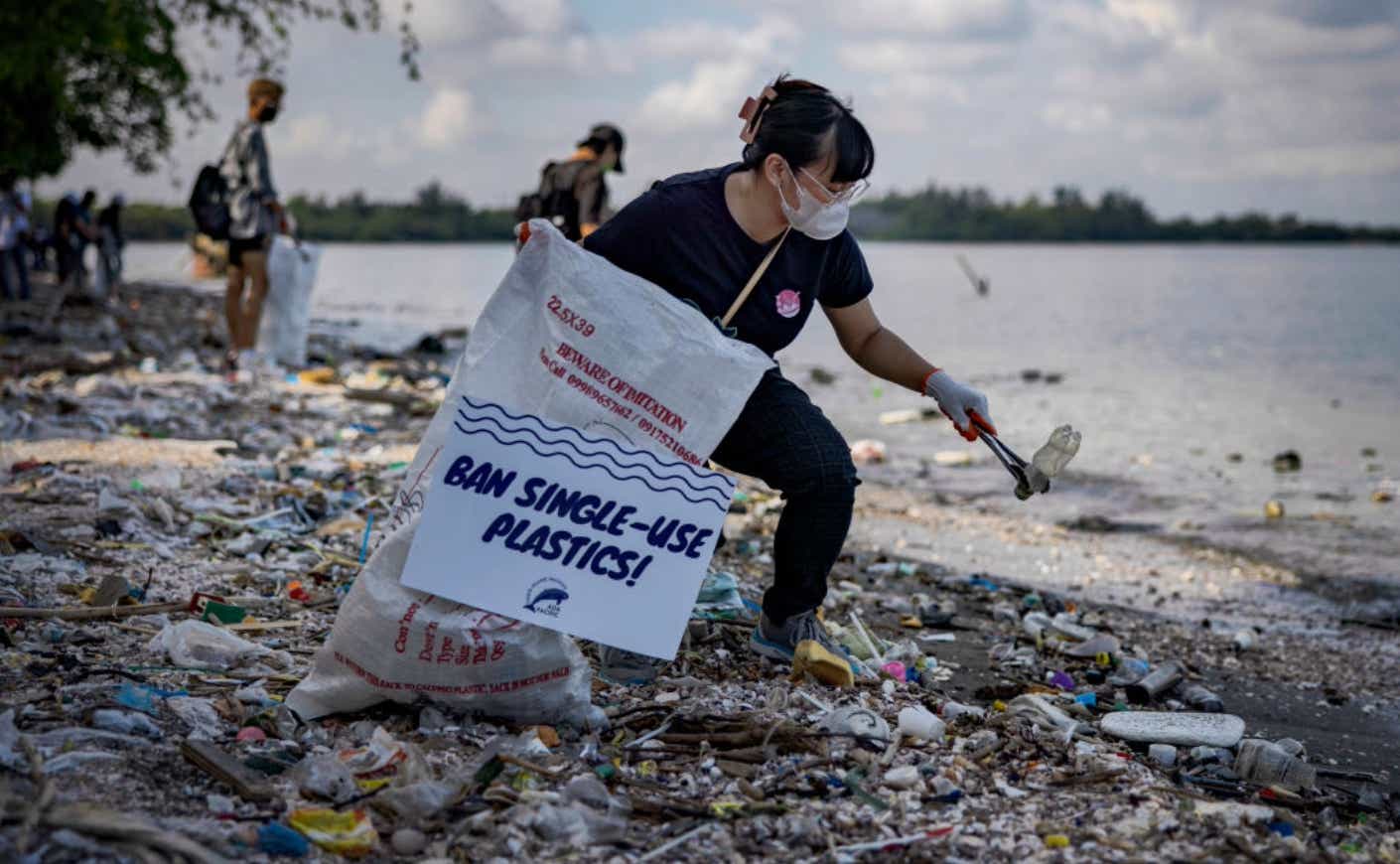Plastics aren’t just cluttering beaches and jamming up recycling bins. They’re now a “grave, growing, and under-recognized danger” to human health, according to one of the world’s leading medical journals, The Lancet.
The threats range from toxic chemical exposure to microplastics inside the body — and they come with staggering economic costs. It’s a crisis unfolding faster than governments and global institutions can keep up with it, raising urgent questions about whether the world can act before the damage becomes irreversible.
The toll of plastics on health
The Lancet review warned that plastics pose risks at every step of their life cycle — starting with the fossil fuels used to make them, through production and everyday use, and long after they’re tossed out. Along the way, they pollute the air, release toxic chemicals, and even leave traces of microplastics inside our bodies. And the ripple effects don’t stop there: Discarded bottles and containers can trap rainwater, creating perfect breeding grounds for mosquitoes that spread disease.
The dangers also lie in how plastics are made. They can contain as many as 16,000 different chemicals, which “enter the human body via ingestion, inhalation, and dermal absorption” — often through everyday items like food packaging and drink containers, the study noted.
Those exposures don’t affect everyone equally. The review found that unborn babies, infants, and young children are “especially at risk,” facing dangers like miscarriage, birth defects, developmental delays, and even a higher risk of diabetes later on. Adults aren’t spared, either, with plastics linked to heart disease, strokes, and cancer.
But the study’s authors caution that the real impact may be far greater than current estimates. “Given the considerable gaps in knowledge of plastic chemicals, it is reasonable to conclude that the full extent of these chemicals’ harms to health is underestimated and that the burden of disease currently attributed to them is undercounted,” they wrote.
These threats also carry a heavy price tag: A study cited by The Lancet estimates plastics-linked illnesses cost the world roughly $1.5 trillion in health-related damages.
What’s driving the spike in plastics production?
Behind the surge is the petrochemical industry, which converts oil and gas into products like plastics, fertilizers, and synthetic rubber. As demand for fossil fuels falls, these companies are doubling down on plastics — a trend The Lancet describes as a “key driver” of production growth.
The problem isn’t slowing down, either. Plastic production is on track to triple by 2060, primarily fueled by single-use items like water bottles and takeout containers. The fallout is already dire: Roughly 8,000 megatons of plastic now cover the planet — enough to stretch from the top of Mount Everest to the bottom of the Mariana Trench. Yet, less than 10 percent of it ever gets recycled. As the Lancet put it: “It is now clear that the world cannot recycle its way out of the plastic pollution crisis.”
So what would it take to turn things around? The study says it will require a mix of science-driven solutions — new laws and policies, stronger enforcement, financial incentives, and innovations — alongside continued research to track the harms.
But progress has been slow. After six rounds of negotiations over more than three years, with 150 countries and hundreds of NGOs involved, efforts to forge the world’s first Global Plastics Treaty collapsed this month without a consensus. Delegates worked late into the night in Geneva, but talks stalled over a core divide. The High Ambition Coalition — led by the EU, UK, Canada, and many African and Latin American states — pushed for caps on production and toxic chemical controls. Oil producers like Saudi Arabia, Russia, and Iran, meanwhile, insisted the treaty focus only on waste management.
There’s still a sliver of hope: The Intergovernmental Negotiating Committee (INC) has pledged to pick negotiations back up in the future, though when and where that will happen remains unclear.
“This has been a hard-fought 10 days against the backdrop of geopolitical complexities, economic challenges, and multilateral strains,” the INC wrote in a press release. “However, one thing remains clear: despite these complexities, all countries clearly want to remain at the table.”
Once dismissed as a recycling headache, plastics have revealed themselves as a far deeper threat. The world may still have a chance to change course, but only if the urgency spelled out in this new research is matched by political will.









